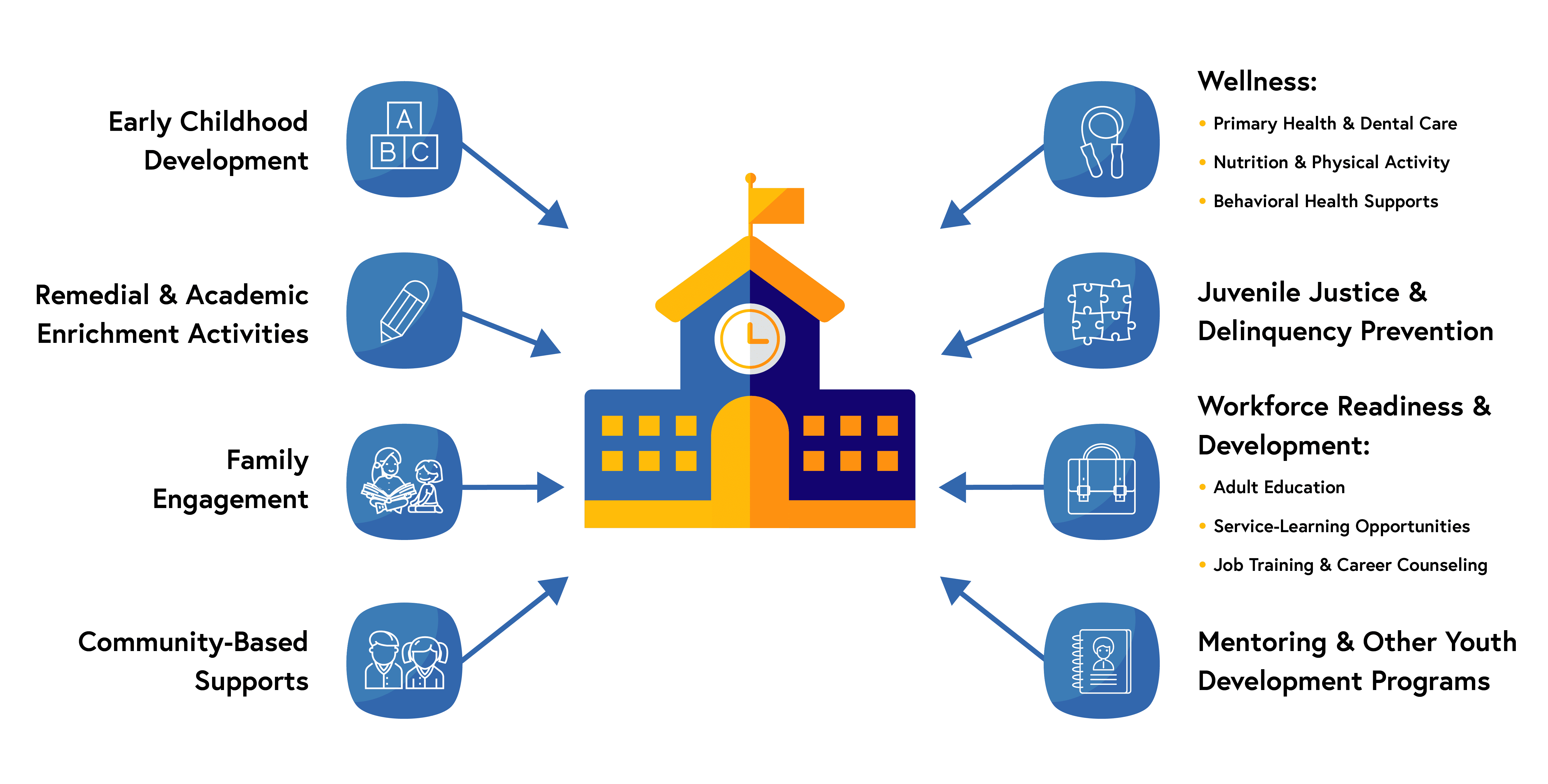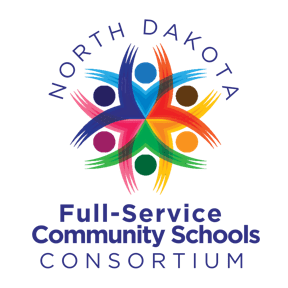North Dakota Full-Service Community Schools are both a place and a set of partnerships that provide coordinated and comprehensive supports to students and families. These supports have been identified to align with eight “pipelines” that are known to improve student, family and community outcomes.
A Full-Service Community School coordinates comprehensive supports for students and families through partnerships in the following pipeline service ares:

Learning programs, particularly impacting children from birth to age 5, that impact long-term social, cognitive, emotional, or physical development.
Evidence-based learning programs that provide opportunities for supplemental support for students to improve their skills and academic outcomes.
Strategies that elevate the role of family as a key partner actively contributing to student’s educational experiences and success.
Services and supports that improve access to programs that promote family stability while aligning goals across community and school.
Primary Health & Dental Care: Programs and services that ensure basic needs are met and provide physical health and dental care services. Nutrition & Physical Activity: Programs and activities that provide food to children and their families, promoting the importance of nutrition and providing opportunities for physical activity. Behavioral Health Supports: Programs and services that provide a variety of behavioral health supports within each phase of the Behavioral Health Continuum of Care (promotion, prevention, treatment, and recovery). Programs and services including, but not limited to, school counseling services, social-emotional learning, behavioral health assessments, consultation, and therapeutic treatment.
Programs, services, and strategies that aim to ensure students are present and attending school regularly as well as provide early interventions, and support to students who are chronically absent, truant, suspended, or expelled.
Adult Education: Programs and services that support essential life skills of family members, and/or improve the personal, professional competencies of educators to build system capacity. Service-Learning Opportunities: Programs that integrate learning goals and service in a way that enhances student learning, the school and community. Job Training & Career Counseling: Programs and partnerships that provide awareness, exploration, and development opportunities to ensure students are choice ready.
In- or out-of-school time programs that aim to provide meaningful connection between experienced persons (mentors) and students (mentees) that lead to improved long-term social, cognitive, emotional, or physical development.

